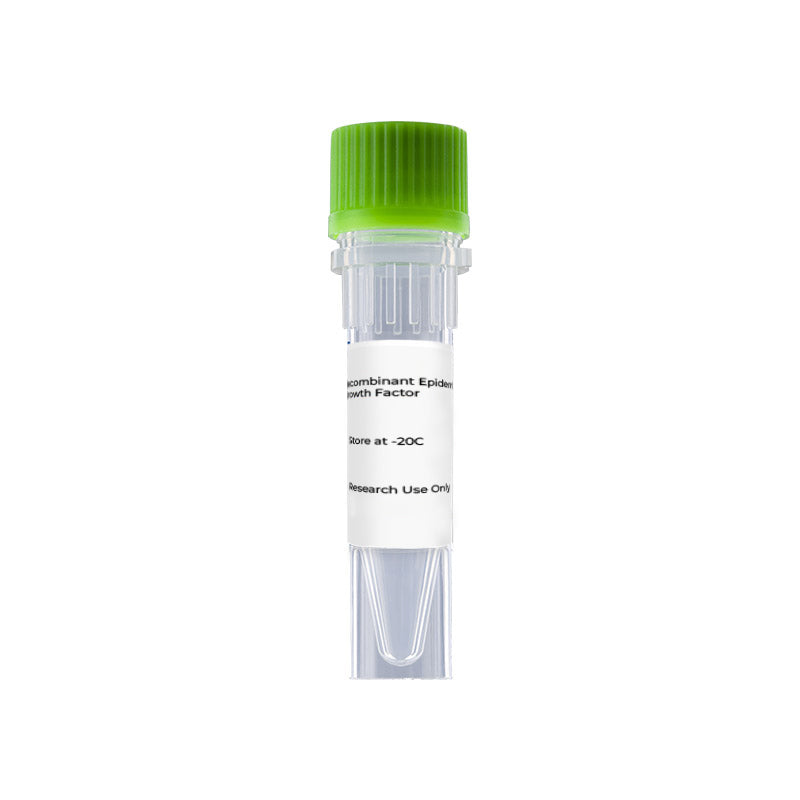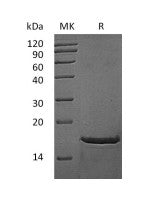1
/
of
2
Recombinant Mouse FGFb
Recombinant Mouse FGFb
Recombinant Mouse Fibroblast Growth Factor 2/Fibroblast Growth Factor Basic is produced by our E.coli expression system and the target gene encoding Met1-Ser154 is expressed.
Catalog No:
EPT120
Regular price
$337.00 USD
Regular price
$259.00 USD
Sale price
$337.00 USD
Unit price
/
per
Couldn't load pickup availability
Product Details
Accession
P15655
Molecular Weight
17.15 KDa
Apparent Molecular Weight
16 KDa, reducing conditions
Purity
Greater than 95% as determined by reducing SDS-PAGE.
Endotoxin
Less than 0.001 ng/µg (0.01 EU/µg) as determined by LAL test.
Expression Host
E. coli
Reconstitution
Always centrifuge tubes before opening.Do not mix by vortex or pipetting.
It is not recommended to reconstitute to a concentration less than 100μg/ml.
Dissolve the lyophilized protein in distilled water.
Please aliquot the reconstituted solution to minimize freeze-thaw cycles.
Shipping Condition
The product is shipped at ambient temperature. Upon receipt, store it immediately at the temperature listed in the Storage field.
Storage Condition and Shelf Life
Lyophilized protein should be stored at < -20C, though stable at room temperature for 3 weeks.
Reconstituted protein solution can be stored at 4-7°C for 2-7 days.
Aliquots of reconstituted samples are stable at < -20C for 3 months.
Background
FGF basic is one of 22 mitogenic proteins of the FGF family, which show 35-60% amino acid conservation. Unlike other FGFs, FGF acidic and basic lack signal peptides and are secreted by an alternate pathway. The 17 kDa mouse sequence has 98% aa identity with rat, and 95% identity with human, bovine, and sheep FGF basic. Binding of FGF to heparin or cell surface HSPG is necessary for binding, dimerization and activation of tyrosine kinase FGF receptors. FGF basic binds other proteins, polysaccharides and lipids with lower affinity. Expression of FGF basic is nearly ubiquitous but disruption of the mouse FGF basic gene gives a relatively mild phenotype, suggesting compensation by other FGF family members. FGF basic modulates such normal processes as angiogenesis, wound healing and tissue repair, embryonic development and differentiation, neuronal function and neural degeneration. Transgenic overexpression of FGF basic results in excessive proliferation and angiogenesis is reminiscent of a variety of pathological conditions.
Analyte
Fibroblast Growth Factors
Regulatory Status
For Research Use Only



